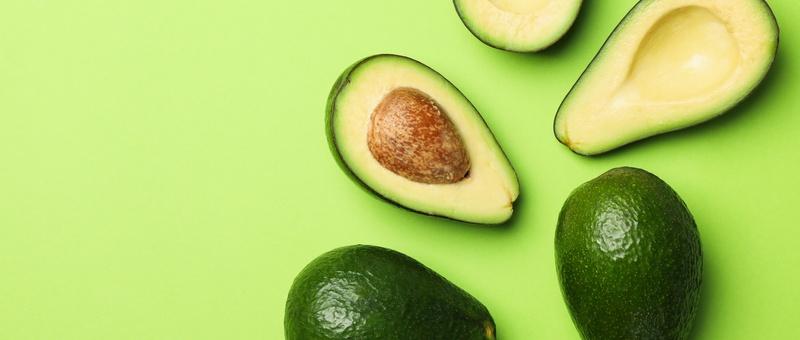
Can probiotics treat obesity and diabetes?
Peer reviewed by Dr Colin Tidy, MRCGPLast updated by Victoria RawLast updated 16 Oct 2025
Meets Patient’s editorial guidelines
- DownloadDownload
- Share
- Language
- Discussion
It can take some big lifestyle changes to look after your health when you have obesity or diabetes. But what if probiotics can support your journey to healthy weight loss, lower cholesterol levels, and improve insulin sensitivity and blood sugar management?
Sign up for our free 10-week Diabetes course!
Each week, we'll explore a different topic to help you better understand and manage your diabetes, including everyday living and medicines, to mental wellbeing, the latest in diabetes tech, and nutrition.
By subscribing you accept our Privacy Policy. You can unsubscribe at any time. We never sell your data.
In this article:
Continue reading below
What are probiotics?
Probiotics are good (beneficial) bacteria that you can consume to balance out the bad (unbeneficial) bacteria in your gut. This natural balance of good and bad bacteria plays a huge role in your overall health - and scientists have discovered an important link between good bacteria, obesity, and diabetes.
With the help of Dr Sharmila Devi, we explore the latest emerging evidence for probiotics as a treatment for both obesity and diabetes - two conditions that are often closely related.
Can probiotics treat obesity?
Probiotics may help people with obesity to lose weight and reduce associated health problems.
Dr Sharmila Devi, a dietitian nutritionist explains that people with obesity have different gut bacteria compared to people who don't.
She says: "This can lead to inflammation, which is a common complication of obesity."
Having long-term inflammation damages cells and can cause all sorts of serious issues, including type 2 diabetes, heart disease, and breast or colon cancer.
The inflammation can partly be helped by taking probiotics and making other changes to your diet. Probiotics may also help you to reverse obesity and reach a healthy weight with other lifestyle measures.
According to Devi, they may work in several ways.
Probiotics may prevent liver fat build-up
Fat is normally stored in the liver, and too much can raise cholesterol. However, probiotics have been shown to stop fat accumulating here, decrease liver weight and blood fats.
Devi says: "This is important because a build-up of fat in the liver can lead to non-alcoholic fatty liver disease (NAFLD) - a common complication of obesity that can lead to serious liver disease, stroke, and heart attacks."
The new name for NAFLD is metabolic dysfunction-associated steatotic liver disease (MASLD).
Probiotics may help weight loss
By helping to reduce liver weight, probiotics can also reduce your overall body weight and fat volume, when supporting a healthy diet.
In one study of women with obesity who had food addiction, those who took probiotic supplements achieved significantly more weight loss than those who didn't. Both groups also followed a calorie-restricted diet at the same time. The study also found that these probiotics were able to regulate the hormones responsible for feeling full1.
Probiotics may lower cholesterol
"Studies have also shown that probiotics can help reduce cholesterol levels," says Dr Devi.
One study revealed that certain probiotic strains absorb cholesterol into their cells, effectively removing it from the bloodstream.
Obesity is closely linked to having high cholesterol - although there are other causes of high cholesterol, including genetics. This can cause a build-up of plaque in your blood vessels, which restricts blood flow to your heart. This is why having high cholesterol puts you in danger of heart attacks, heart disease, and stroke.
Continue reading below
Can probiotics help manage diabetes?
Obesity and type 2 diabetes are closely connected - the former increasing your chances of developing the latter. They also share many of the same health complications, including high blood pressure, heart disease, and other heart-related problems.
Probiotics are already being used to treat type 2 diabetes, especially the bacteria strains called Lactobacillus and Bifidobacterium.
Probiotics improve insulin sensitivity
"Probiotics have been shown to be effective in the treatment of diabetes because they can help improve insulin sensitivity, which is important for people with diabetes," says Devi.
Insulin is a hormone released by your body to help the sugar in your blood pass to your cells. By increasing your sensitivity to insulin, you can lower your blood sugar levels and the associated hazards, which include damage to your eyes, nerves, and kidneys.
By reducing the buildup of fat in your liver, probiotics can reduce insulin resistance because less insulin is used up for synthesising fatty acids.
Probiotics reduce inflammation
Devi also points out that probiotics can help reduce long-term inflammation in the body, where your immune system triggers internal swelling throughout your body, leading to cell damage.
Inflammation is another common outcome of diabetes. Type 1 diabetes is more related to how your immune system works, which directly influences inflammation processes in the body. In contrast, type 2 diabetes is often related to lifestyle factors, such as having a pro-inflammatory diet or having obesity, which can trigger inflammation.
For this reason, anti-inflammatory diets are also being considered as a treatment for type 2 diabetes, alongside probiotic supplementation for type 1 and type 2.
Should you start taking probiotics?
Probiotics are found in many fermented foods, including natural yoghurt, kefir, kimchi and sauerkraut. They are also widely available as supplements, in the form of tablets, powders, and liquids - here's how to look for a quality probiotic supplement.
Devi describes the evidence on probiotics for the treatment of obesity and diabetes as promising. However, she warns that there are still some knowledge gaps to be addressed.
"We don't yet know the optimal dose of probiotics you should take daily to treat obesity and diabetes," she says. "We also need more research to fully understand the long-term effects of probiotic supplements on human health."
What we do know is that consuming probiotic supplements is generally considered safe for weeks and months at a time.
You cannot effectively treat obesity and type 2 diabetes without a healthy diet and active lifestyle. There's no evidence that probiotics have a beneficial effect if your diet is poor. The takeaway? You may want to try probiotics to support your health, as long as they are an addition to - and not a replacement for - the healthy lifestyle tactics recommended by your doctor.
Continue reading below
Further reading
Patient picks for Vitamins and supplements

Diet and nutrition
The 5 best probiotic foods for a healthy gut
Actor Margot Robbie relied on them to prepare for her starring role in 'Barbie', so what is it about probiotic foods that help us feel and look good inside and out? Probiotic foods contain a large number of 'good bacteria', so-called because they play a key role in the health and function of your gut. For this reason, many people experiencing persistent and uncomfortable digestive problems - such as bloating, gas, or diarrhoea - are incorporating probiotic foods into their diets. Which foods contain the most probiotics, and what does current research say?
by Amberley Davis

Diabetes
How to snack when you have diabetes
Everyone needs to snack sometimes. But if you have diabetes, it's important to choose something that won't have a big effect on your blood sugar levels. Managing diabetes and snacking doesn't have to be a challenge. We explore the best snacks for those with type 1 and type 2 diabetes and how to avoid hypos.
by Victoria Raw
Article history
The information on this page is peer reviewed by qualified clinicians.
Next review due: 16 Oct 2028
16 Oct 2025 | Latest version
13 Dec 2023 | Originally published
Authored by:
Amberley Davis

Ask, share, connect.
Browse discussions, ask questions, and share experiences across hundreds of health topics.

Feeling unwell?
Assess your symptoms online for free
Sign up to the Patient newsletter
Your weekly dose of clear, trustworthy health advice - written to help you feel informed, confident and in control.
By subscribing you accept our Privacy Policy. You can unsubscribe at any time. We never sell your data.